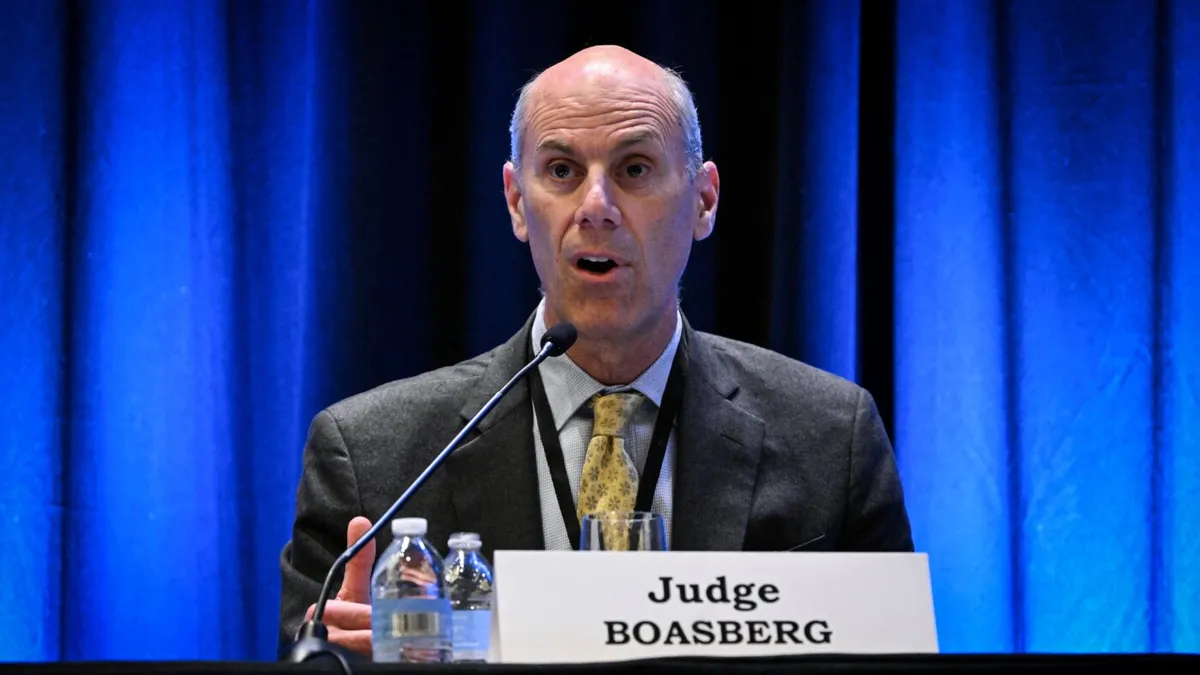
In a significant development regarding immigration policy, a federal judge has raised serious concerns about the Trump administration's compliance with a court order. On Thursday, U.S. District Judge James Boasberg indicated there is a strong likelihood that the administration violated his directives by allowing two flights carrying migrants to continue to El Salvador last month. This ruling has reignited discussions about the administration's use of the Alien Enemies Act, a rarely invoked wartime power.
During the court proceedings, Judge Boasberg pressed the Justice Department to clarify its application of the Alien Enemies Act, specifically questioning the confidentiality claims surrounding the details and timeline of the flights. The administration has argued that this information is protected under state secrets, but Boasberg expressed skepticism. "If you really believed everything you did that day was legal and could survive a court challenge, I can't believe you ever would have operated in the way you did," he stated, challenging the government’s rationale.
Deputy Assistant Attorney General Drew Ensign defended the government's position, asserting that Boasberg's initial verbal order lacked the weight of his later written directive. However, Boasberg was unconvinced, responding that there is a "fair likelihood" the administration acted in bad faith, suggesting a troubling pattern of behavior throughout the incident.
The flights at the center of this legal battle took off from the U.S. on March 15, coinciding with President Trump's invocation of the Alien Enemies Act of 1798. This proclamation allowed the administration to expeditiously remove alleged members of Tren de Aragua, a Venezuelan gang labeled by the White House as a foreign terror organization. Over 100 men were sent to a maximum-security prison in El Salvador under this controversial law.
In response, the American Civil Liberties Union (ACLU) and other immigrant rights groups swiftly filed a lawsuit, leading to an emergency hearing with Judge Boasberg that same afternoon. He issued a verbal order prohibiting the use of the Alien Enemies Act for deportations and instructed that any planes in the air should be returned to the U.S. Despite these orders, the flights continued to their destination in El Salvador.
Looking forward, Judge Boasberg hinted at the possibility of contempt proceedings against the administration, with an order expected to be issued next week. The case has multiple facets, as the Trump administration has appealed Boasberg's March injunction to the D.C. Circuit Court of Appeals. In a narrow 2 to 1 decision, the court sided with Boasberg, with Judge Patricia Millett emphasizing that the alleged gang members were not provided an opportunity to contest the accusations before their deportation.
Currently, the Trump administration is seeking to escalate the matter to the U.S. Supreme Court, which is deliberating on whether to intervene in this contentious immigration issue. As the legal proceedings unfold, the implications of this case could have lasting impacts on immigration policy and the use of wartime powers in the U.S.